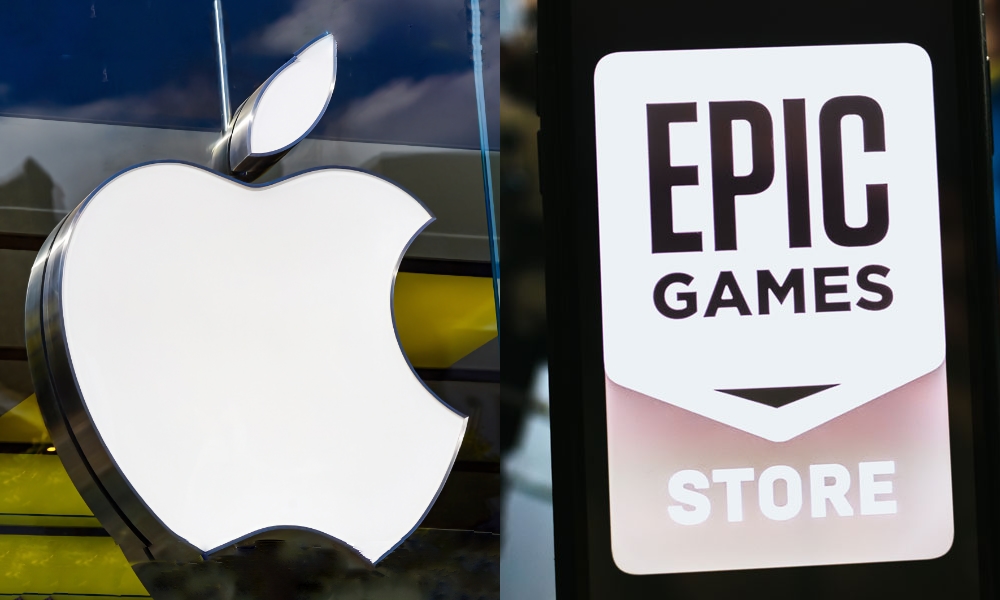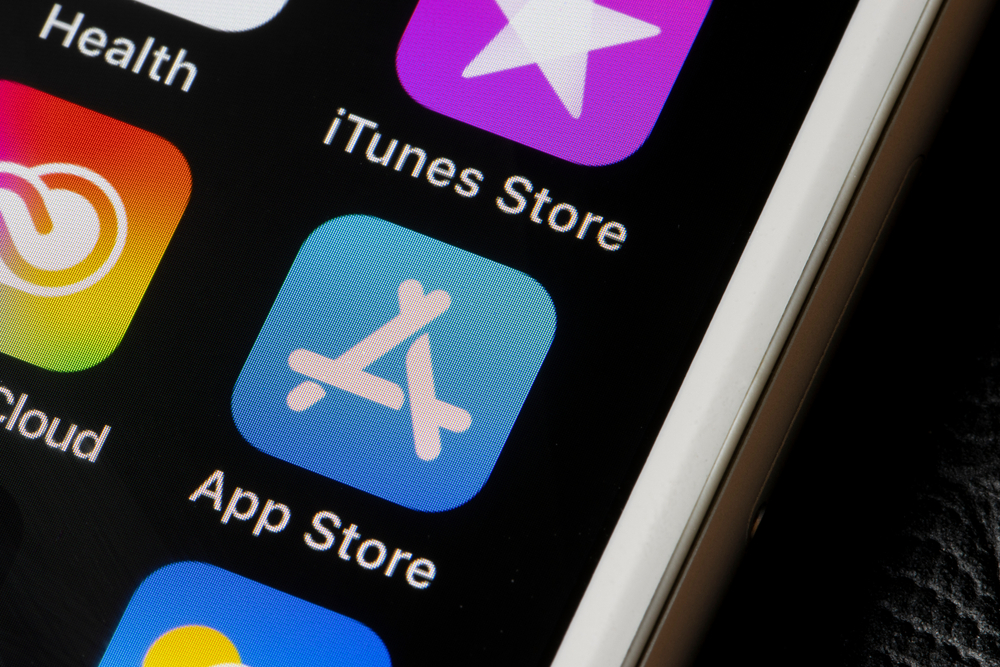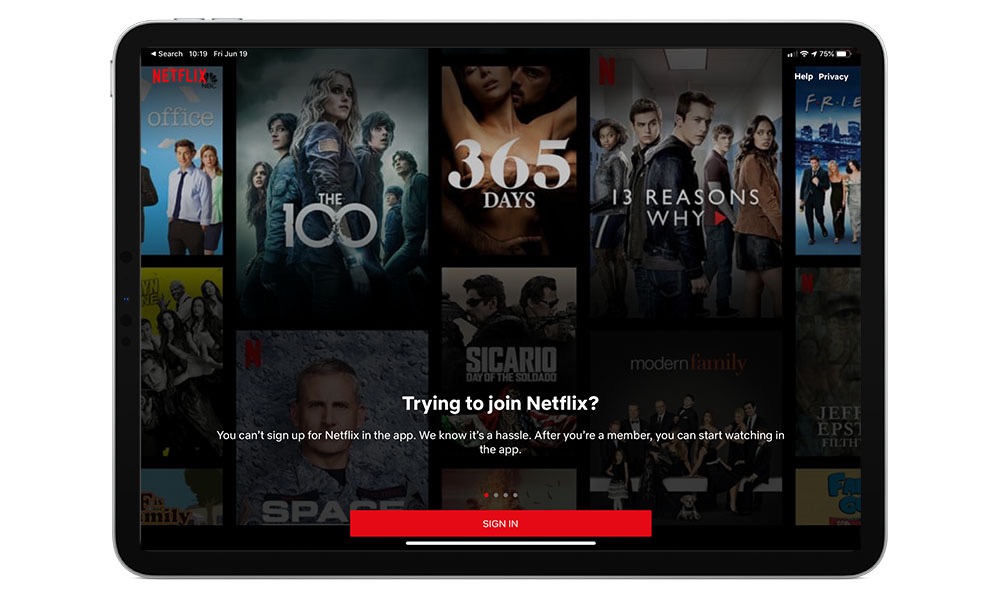Apple Declares ‘Resounding Victory’ in Epic Games Appeal
 Credit: Vytautas Kielaitis / nikkimeel / Shutterstock
Credit: Vytautas Kielaitis / nikkimeel / Shutterstock
Toggle Dark Mode
The next round in the ongoing fight between Apple and Epic Games has come to an end, with an appellate court ruling overwhelmingly — but not entirely — in Apple’s favor.
While this means it will mostly be business as usual for the App Store, it’s still only the latest battle in the ongoing war between the two tech giants that began in the summer of 2020 when Epic Games flagrantly violated its agreement with Apple by sneaking its own purchasing system into Fortnite. It was a clearly calculated setup intended to goad Apple into turfing Fortnite from the App Store, thereby giving Epic an excuse to launch its carefully-prepared lawsuit, accusing Apple of anti-competitive behavior and violation of antitrust laws.
After a year of legal wrangling, including a failed attempt by Epic to have the courts force Apple’s hand, the initial lawsuit came to a close in a 2021 district court ruling when Judge Yvonne Gonzalez-Rogers sided with Apple on all but one of the claims that Epic Games had brought against Apple. While Judge Rogers ruled that Epic had failed to prove that Apple was a monopolist, dismissing all counts related to that point, she did concede that Apple had engaged in “anti-competitive conduct under California’s competition laws” with its “anti-steering” rules.
Specifically, Judge Rogers ruled that the terms of Apple’s Developer Program License Agreement (DPLA) prohibiting apps from including “buttons, external links, or other calls to action that direct customers to [other] purchasing mechanisms” violated California’s Unfair Competition Law (UCL).
In short, the court ruled that it’s unfair for Apple to prevent third-party developers from informing their customers of other ways to pay for in-app purchases and subscriptions.
This is easily the most controversial rule in Apple’s App Store Guidelines and one that even Apple’s staunchest supporters have difficulty defending. It’s the rule that prevents Netflix and Spotify from even telling you that you have to visit their website to sign up for service. However, it’s also a rule that Apple has gradually been softening — prior to Judge Rogers’ ruling, it had already relaxed this rule for “Reader” apps, a category that includes Netflix and Spotify — but Apple hasn’t been doing this quickly enough or broadly enough to satisfy the courts.
As a result, Judge Rogers’ also issued an injunction that “permanently restrained” Apple from prohibiting developers from including “buttons, external links, or other calls to action that direct customers to purchasing mechanisms, in addition to In-App Purchasing.”
Of course, that wasn’t nearly enough for Epic Games, which had lost on every other count; Judge Rogers even upheld Apple’s right to receive a commission from App Store sales and in-app purchases — even if they weren’t being processed by Apple’s payment system.
In an ironic twist, Judge Rogers conceded that Apple’s 30% commission “appears inflated” and is even “potentially anticompetitive.” However, Epic Games had only challenged Apple’s right to receive any commissions at all, maintaining that it should not be required to pay anything to Apple. Hence, Judge Rogers wasn’t in a position to do more than comment on the matter, as the amount of the commission wasn’t within the scope of the case.
On top of that, in response to a countersuit by Apple for breach of contract, Judge Rogers also ordered Epic to pay Apple the commissions that it should have earned had it not violated the DPLA in the first place by setting up its own purchasing system.
The Appeal
While Epic quickly filed an appeal to take the case to the Ninth Circuit Court, Apple also did the same, challenging the district court’s decision on the one count it had lost — the anti-steering provision. Apple also requested and received a stay of the injunction that would have otherwise required it to change its rules by December 2021.
Now, nearly fifteen months later, the dust has settled on that appeal, which has basically upheld the earlier decision: Epic could not make a sufficient case that Apple is a monopolist under federal or state antitrust laws, and therefore nearly all of Apple’s Developer Program License Agreement is valid and enforceable against Epic Games or any other developer that choose to violate its terms and conditions.
However, the appellate court also denied Apple’s challenge, upholding Judge Rogers’ ruling that the anti-steering clauses in the DPLA violate California’s Unfair Competition Law (UCL). This puts the original injunction back in play, which will force Apple to abandon its anti-steering rules and allow developers to place buttons and links to other payment processors.
Notably, the ruling also challenged Apple’s claim that Epic was not injured by the anti-steering provision, partly as it still has subsidiary companies with apps on the App Store and also because it prevented potential customers from discovering the Epic Games Store where they may have been able to enjoy lower prices.
Epic is a competing game distributor through the Epic Games Store and offers a 12% commission compared to Apple’s 30% commission. If consumers can learn about lower app prices, which are made possible by developers’ lower costs, and have the ability to substitute to the platform with those lower prices, they will do so—increasing the revenue that the Epic Games Store generates.Ninth Circuit Court of Appeals
The appellate court agreed with the district court that “Epic suffered an injury for which monetary damages would be inadequate” because of the sheer scope of the anti-steering provision’s potential impact across hundreds of thousands of apps and whether those apps would have been available on the Epic Games Store, and how many customers would have opted to purchase those apps directly from Epic’s store rather than Apple’s.
In 2019, there were over 300,000 games on the App Store. Calculating the damages caused by the anti-steering provision would require a protracted and speculative inquiry into: the availability of each of those 300,000 games on the Epic Games Store, the percentage of revenue on each game that comes from users who multi-home and can therefore substitute, and how high the substitution rate would be among those multi-home users.Ninth Circuit Court of Appeals
The majority upheld the district court’s overall decision, noting only that it erred in properly defining the market in which Apple and Epic were competing; however, the court deemed that error to be “harmless.” It also determined that the district court erred in its interpretation that Epic was not required to pay Apple’s attorney fees for the case and reversed that decision, remanding it back to the lower court to work out the details.
Circuit Judge S.R. Thomas wrote a partially dissenting opinion, agreeing with much of the majority, particularly as it pertained to the California UCL claims, resulting injunction against Apple’s anti-steering rules, the rejection of Epic’s claims that Apple’s DPLA was illegal, and the requirement that Epic pay attorney’s fees for its breach of contract.
The district court’s errors relate to threshold analytical steps, and the errors affected Epic’s substantial rights. Thus, I would reverse the district court and remand to evaluate the claims under the correct legal standard.Judge S.R. Thomas, Ninth Circuit Court of Appeals
However, Judge Thomas disagreed that the errors made by the district court in defining the relevant market were “harmless,” suggesting that the case should have been sent back to the district court to be re-evaluated based on “the foremarket of mobile operating systems,” which had been rejected by the district court because Apple doesn’t sell iOS or iPadOS separately from its mobile devices. Judge Thomas cited precedent from other cases that showed that “separate markets existed for software and hardware even when they were always bundled together.”
What Happens Now?
In a statement sent to various media outlets, Apple has called the decision a “resounding victory,” noting that nine of ten claims were decided in its favor. Naturally, Apple adds that it “respectfully disagrees” with the court’s ruling on the anti-steering provision, although it hasn’t yet said whether it plans to appeal that one further, adding only that it’s “considering further review.”
Today’s decision reaffirms Apple’s resounding victory in this case, with nine of 10 claims having been decided in Apple’s favor. For the second time in two years, a federal court has ruled that Apple abides by antitrust laws at the state and federal levels.Apple
With the appellate court decision, the injunction requiring Apple to allow developers to steer users to other payment systems will presumably go back into effect, although there may still be some legal wrangling involved here. Apple has previously tried to make the case that the injunction had been applied too broadly to encompass all developers, despite being issued to provide “intuitive relief” to Epic Games — which no longer has any apps on the App Store.

However, this week’s decision appears to expand the injunctive relief to at least cover Epic Games’ subsidiaries. However, Apple’s anti-steering provisions could also be construed as blocking access to the Epic Games Store for all third-party developers, thereby impacting Epic by stifling competition. We’ll have to wait and see how this one plays out in practical terms, but there’s a good chance Apple will find a way to at least drag its heels on this one.
Nevertheless, Epic Games CEO Tim Sweeney is partially celebrating a win, noting that developers are now free to “send consumers to the web to do business with them directly.”
Fortunately, the court’s positive decision rejecting Apple’s anti-steering provisions frees iOS developers to send consumers to the web to do business with them directly there. We’re working on next steps.Tim Sweeney, CEO, Epic Games
It’s unclear whether the “next steps” Sweeney refers to are preparing a further appeal to the Supreme Court or getting the Epic Games Store ready for the new reality. Perhaps both.
There is a lively and important debate about the role played in our economy and democracy by online transaction platforms with market power. Our job as a federal Court of Appeals, however, is not to resolve that debate—nor could we even attempt to do so.Ninth Circuit Court of Appeals
For its part, the Ninth Circuit Court of Appeals notes that it stuck with the facts of this particular case, carefully stopping short of even attempting to address the broader issue of the mobile app ecosystem. That’s a war that will undoubtedly continue to be waged on many other fronts as regulators around the world, from the U.S. to Europe to Japan, continue to try and define precisely what rules platforms and developers should be playing by and where those lines are to be drawn.











